Jesus Jackson
by James Daley
In his thought-provoking, suspenseful debut novel, Jesus Jackson, James Ryan Daley deftly combines 14-year-old Jonathan Stiles's quest for answers about the circumstances of his older brother Ryan's death with a search for answers of a spiritual nature.
Jonathan's first-person narrative allows readers to discover the answers right along with him, and to unlock the mysteries of the book's two central journeys in surprising and meaningful ways. Few YA novels attempt to take on the questions so central to adolescence--whether or not to accept the religious beliefs of one's parents, and even whether or not God exists. Daley probes these questions responsibly and intelligently in a story that poses high stakes for its central character.
"When I first saw Jesus, he was standing like a statue on the fifty-yard line of the high school football field," the book begins. Daley's bold statement works because he follows it with humor: "Now I know what you're thinking, but stop right there. And trust me: This guy was totally Jesus.... The only difference, as far as I could tell, between the Jesus on the football field and the one hanging on the cross in the school auditorium, was his clothes." The author hooks readers from the start, laying the foundation with the essential elements of the novel: the Jesus figure and the question of whether or not he's real, football (in which Ryan is "a veritable athletic god"), and the question of trust. As readers go on Jonathan's journey with him, we--and he--discover the limits of what he knows.
When Jonathan first meets Jesus Jackson on the football field during his first day at Saint Soren's Academy, it's just hours after Ryan's body is found at the bottom of a 60-foot ravine. Jonathan's day had not begun well, and only grows worse. For starters, as he entered morning assembly, someone accidentally knocked Jonathan down, and he exclaimed, "Jesus F---ing Christ," which astounded all of the students at the Catholic high school except for the perpetrator: Henry Sun. That's how Jonathan discovers that Henry is a like-minded atheist--or at least, a doubter. After lunch, the two go exploring together in the woods at the edge of the school grounds and discover a quartet of football players surrounding a textbook with a dusting of white powder. Henry yells, "Drugs!" and starts to bolt, but he and Jonathan are pinned down by Alistair St. Claire and another football star. As Alistair brings Jonathan to near unconsciousness, Ryan appears, "dazed and flushed as if he'd just been crying or running or both," realizes that Jonathan is the one under Alistair, and hauls off, swinging his fists into Alistair's face, stomach, ribs and throat. He pauses to say, "Jesus, Jonathan. Take your little friend and get the f--- out of here." That's the last time Jonathan ever sees his brother.
Daley moves fluidly from Jonathan's search for clues to his brother's death to flashbacks of when Jonathan was nine years old, and Ryan informed him there "was no such thing as God." The brothers had embarked together on a quest to discover the world's religions. "I don't think I'd ever considered the fact that there are people whose idea of 'god' was different than my own," Jonathan realizes. After their parents' divorce three years ago, Ryan was the only person who remained consistently there for Jonathan. Now Ryan is dead, and Jonathan is left without anything to believe in and no one to look up to. However, he does believe that Alistair has some part to play in Ryan's death.
Jonathan's parents, while physically present, succumb to grief, searching for their own answers. Daley succinctly captures their unavailability: Jonathan can't bear to be around his "grieving mother's mania," and his father picks him up in a jet-black 2011 Porsche Boxster convertible that "was like everything else about him: loud, fast, and slightly uncomfortable."
When Jonathan returns to school, everyone is saying "he's with God now," and implying that Ryan was a believer. Did they know something Jonathan didn't know? Tristan, Ryan's longtime girlfriend, reveals facts that surprise Jonathan, and he begins to question how well he knew his brother. Jonathan enlists Henry to help him in his detective work.
Jesus Jackson, "spiritual contractor" (as his business card reads), always seems to show up at the exact right moment with just the right question. Who is Jesus Jackson? He's not a Christ figure, and sometimes even seems like a bit of a charlatan ("100% faith guaranteed/ Call for a free estimate!" his card proclaims). Yet he always appears to know just what Jonathan needs to ask himself. Can Jesus be trusted?
As Jonathan tries to make sense of his relationship with Ryan and Ryan's death, he also embarks on a journey to understand himself and what's important to him. He develops a friendship and flirts with romance.
Daley crafts an honest exploration of faith and doubt, intimacy and alienation. He leaves readers with a sense of hope, as Jonathan gains a deeper understanding of himself, and begins to learn some self-reliance where he had always relied upon Ryan. This is a writer to watch. --Jennifer M. Brown



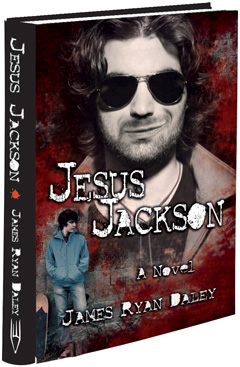
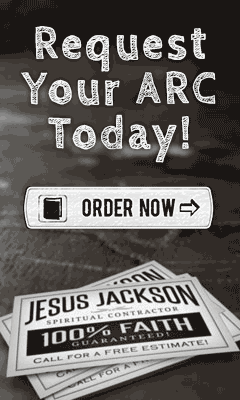
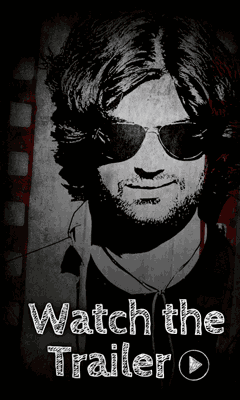

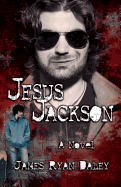

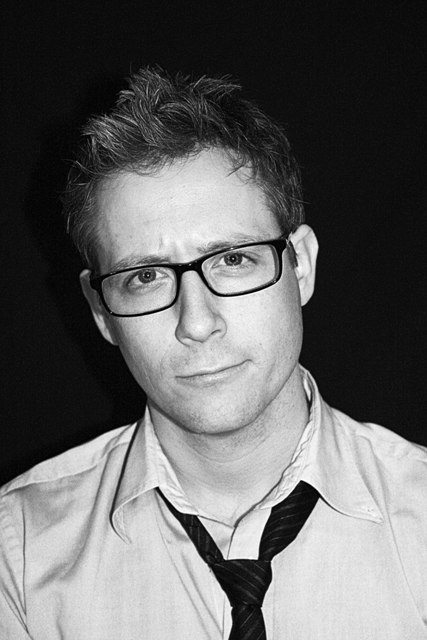 James Ryan Daley
James Ryan Daley